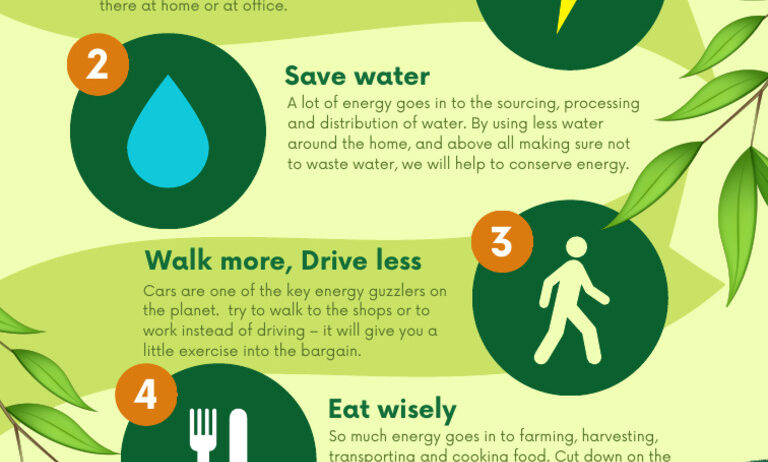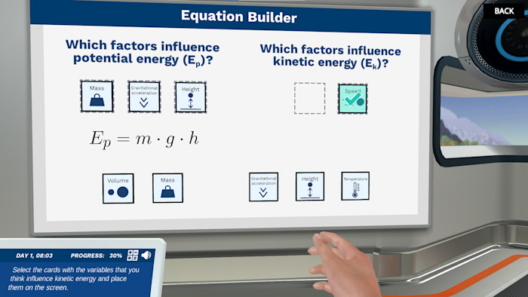Conserving biological energy is paramount for not only enhancing our health but also ensuring that we maintain ecological balance. In an era where lifestyle diseases proliferate, understanding how to conserve energy within our bodies can yield significant benefits for both individual health and broader environmental consequences. This exploration will delve into the methods of conserving biological energy, touching upon nutrition, physical activity, mindfulness, and environmental considerations.
Understanding biological energy begins with recognizing the body’s intricate systems. Biological energy, primarily derived from the food we consume, comprises the calories our body utilizes to perform complex functions. These functions include metabolism, digestion, and physical exertion. The need to optimize how we produce and conserve this energy is critical, especially as the modern lifestyle often depletes our reserves through stress and poor dietary choices.
Nutrition: Fueling for Appropriateness
The quality of nutrition plays a fundamental role in energy conservation. Consuming foods high in processed sugars and unhealthy fats can lead to energy spikes followed by debilitating crashes. Instead, a diet replete with whole, nutrient-dense foods can sustain and stabilize our energy levels. Foods rich in complex carbohydrates, such as whole grains, legumes, and vegetables, release energy gradually, keeping energy levels consistent throughout the day.
Moreover, integrating a plethora of antioxidants—found in fruits and vegetables—combats oxidative stress, a significant burglar of biological energy. Antioxidants bolster the body’s defenses, promoting resilience. Moreover, adequate hydration is paramount. Water is essential for various metabolic processes, and dehydration can sap energy levels inexplicably. Therefore, prioritizing hydration can enhance physical and cognitive functionality significantly.
Another aspect often overlooked is meal timing. Consuming meals rich in fuel at intervals can prevent unnecessary energy depletion. Following a pattern of smaller, frequent meals rather than conventional three large meals can facilitate an even distribution of energy throughout the day, supporting sustained cognitive function and physical stamina.
Physical Activity: Optimize Usage
Physical activity is often perceived paradoxically; while it utilizes energy, it simultaneously contributes to conservation in the long term. Engaging in regular, moderate exercise improves cardiovascular health, thereby enhancing the efficiency of oxygen and nutrient transport throughout the body. Such efficiency conserves biological energy as the body operates optimally.
Prioritizing low-impact exercises, such as swimming, cycling, or yoga can lead to profound health benefits. These activities are less likely to exhaust biological reserves while promoting long-term vitality. Moreover, strength training fosters muscle growth, which can enhance metabolic efficiency. Increased muscle mass improves calorie burning during rest, conserving energy for other crucial body functions.
However, it is vital to discern the difference between physical exertion that revitalizes and overexertion that depletes. The body requires adequate rest and recovery to rebuild and fortify muscles, preventing energy wastage. An understanding of the principle of recovery can radically shift individual perception of activity’s role in energy conservation.
Mindfulness and Stress Management: The Cognitive Detractors
The incessant pace of modern life often culminates in chronic stress, which can be detrimental to biological energy conservation. Stress generates cortisol, a hormone that may lead to increased cravings for energy-dense foods, fostering an unhealthy cycle. Hence, implementing mindfulness practices—such as meditation, deep breathing exercises, or yoga—can mitigate stress and restore balance to the mind and body.
Mindfulness encourages a heightened awareness of the body’s needs, allowing for more satisfying responses to hunger and fatigue. Cultivating mindfulness can enhance activity choice, meal selection, and even interaction quality. The imaginative aspects of mindfulness foster a more contemplative and intentional lifestyle, reducing the frenetic energy spent wandering through unhealthy habits.
Environmental Considerations: The Broader Connection
A holistic view incorporates environmental elements which, fascinatingly, impact our biological energy reserves. The built environment, emissions from transportation, and quality of surrounding nature can significantly influence energy levels. Spending time outdoors, amidst greenery, not only replenishes psychological well-being; it also serves to enhance biological energy conservation. Exposure to natural light regulates circadian rhythms, prompting better sleep and rejuvenation.
Moreover, the fabrics of our societies often dictate the availability of nutritious foods. Supporting local agriculture can reduce carbon footprints while expediting the consumption of fresh produce, enhancing nutrient intake and, consequently, biological energy efficiency. Engaging in community-based initiatives that focus on sustainability contributes collectively to energy conservation, establishing a culture that values both health and environmental integrity.
Conclusion: A Symbiotic Relationship
Conserving biological energy is a multifaceted endeavor that integrates various aspects of life. Nutrition, physical activity, mental well-being, and environmental interaction all play pivotal roles in cultivating an ecosystem conducive to energy conservation. As individuals, the realization of this interconnectedness can enhance personal vitality while promoting a collective commitment towards sustainable practices. By embracing this approach, it becomes evident that the quest for health is not merely an individual journey but a communal and ecological responsibility.








